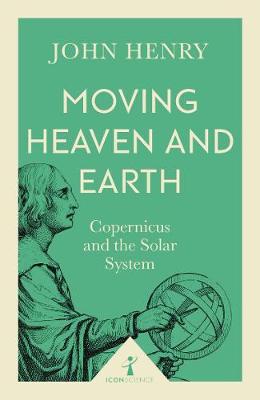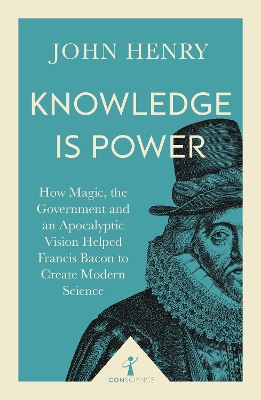Icon Science
2 total works
When Nicolaus Copernicus claimed that the Earth was not stationary at the centre of the universe but circled the Sun, he brought about a total revolution in the sciences and consternation in the Church.
Copernicus' theory demanded a new physics to explain motion and force, a new theory of space, and a completely new conception of the nature of our universe. He also showed for the first time that a common-sense view of things isn't necessarily correct, and that mathematics can and does reveal the true nature of the material world.
As John Henry reveals, from his idea of a swiftly moving Earth Copernicus sowed the seed from which science has grown to be a dominant aspect of modern culture, fundamental in shaping our understanding of the workings of the cosmos.
Copernicus' theory demanded a new physics to explain motion and force, a new theory of space, and a completely new conception of the nature of our universe. He also showed for the first time that a common-sense view of things isn't necessarily correct, and that mathematics can and does reveal the true nature of the material world.
As John Henry reveals, from his idea of a swiftly moving Earth Copernicus sowed the seed from which science has grown to be a dominant aspect of modern culture, fundamental in shaping our understanding of the workings of the cosmos.
Francis Bacon - a leading figure in the history of science - never made a major discovery, provided a lasting explanation of any physical phenomena or revealed any hidden laws of nature. How then can he rank as he does alongside Newton? Bacon was the first major thinker to describe how science should be done, and to explain why. Scientific knowledge should not be gathered for its own sake but for practical benefit to mankind. And Bacon promoted experimentation, coming to outline and define the rigorous procedures of the 'scientific method' that today from the very bedrock of modern scientific progress. John Henry gives a dramatic account of the background to Bacon's innovations and the sometimes unconventional sources for his ideas. Why was he was so concerned to revolutionize the attitude to scientific knowledge - and why do his ideas for reform still resonate today?

